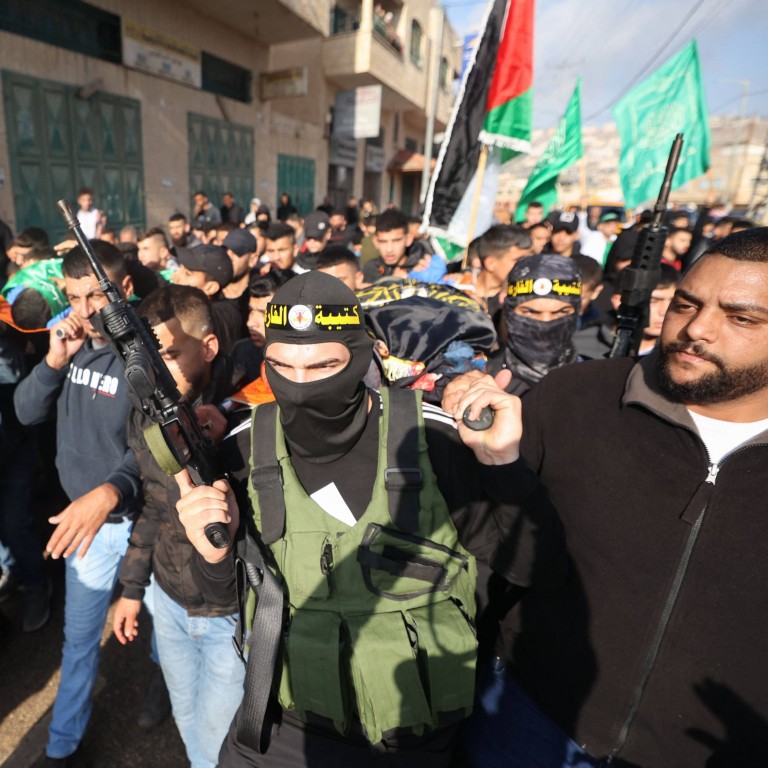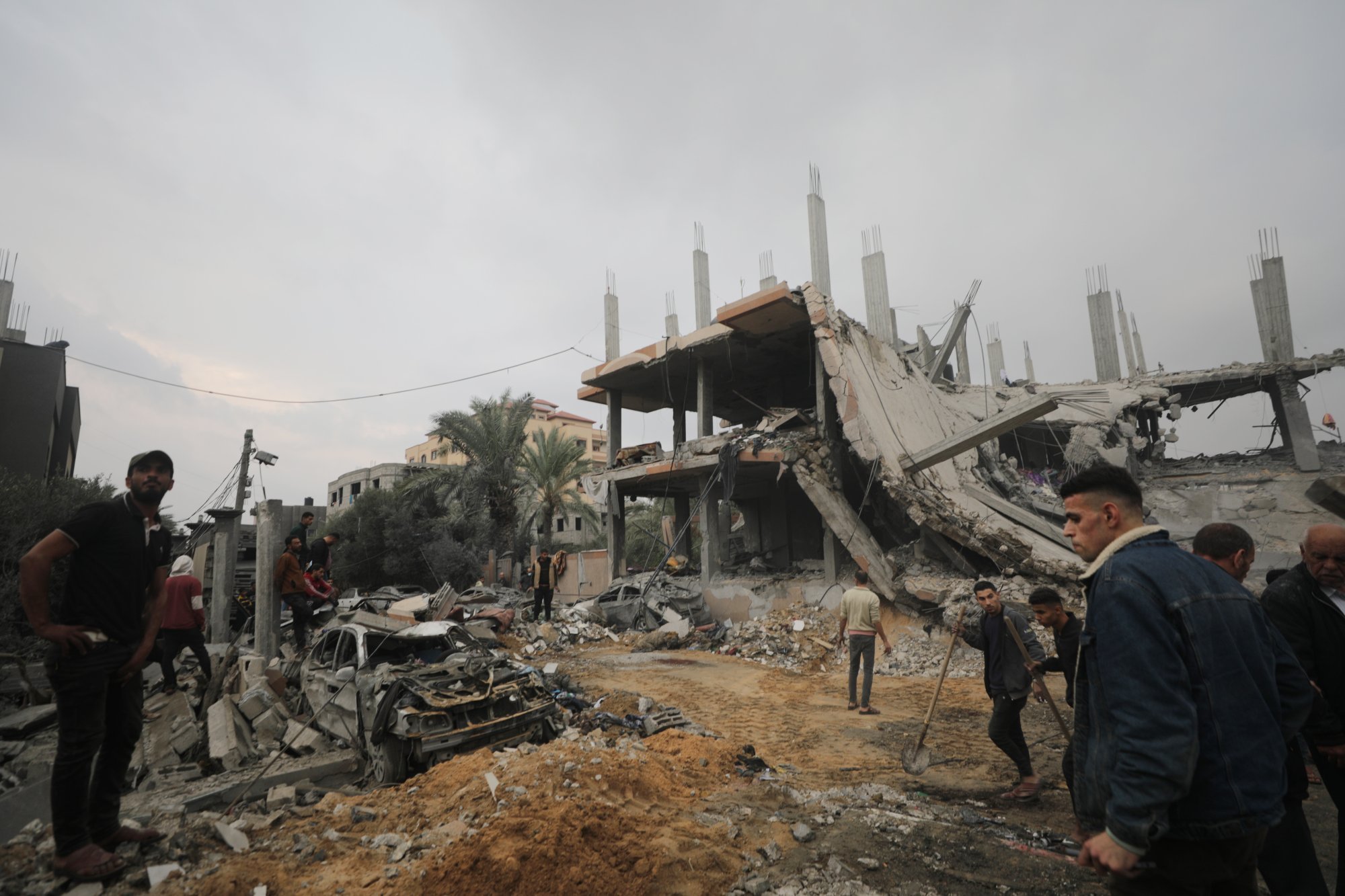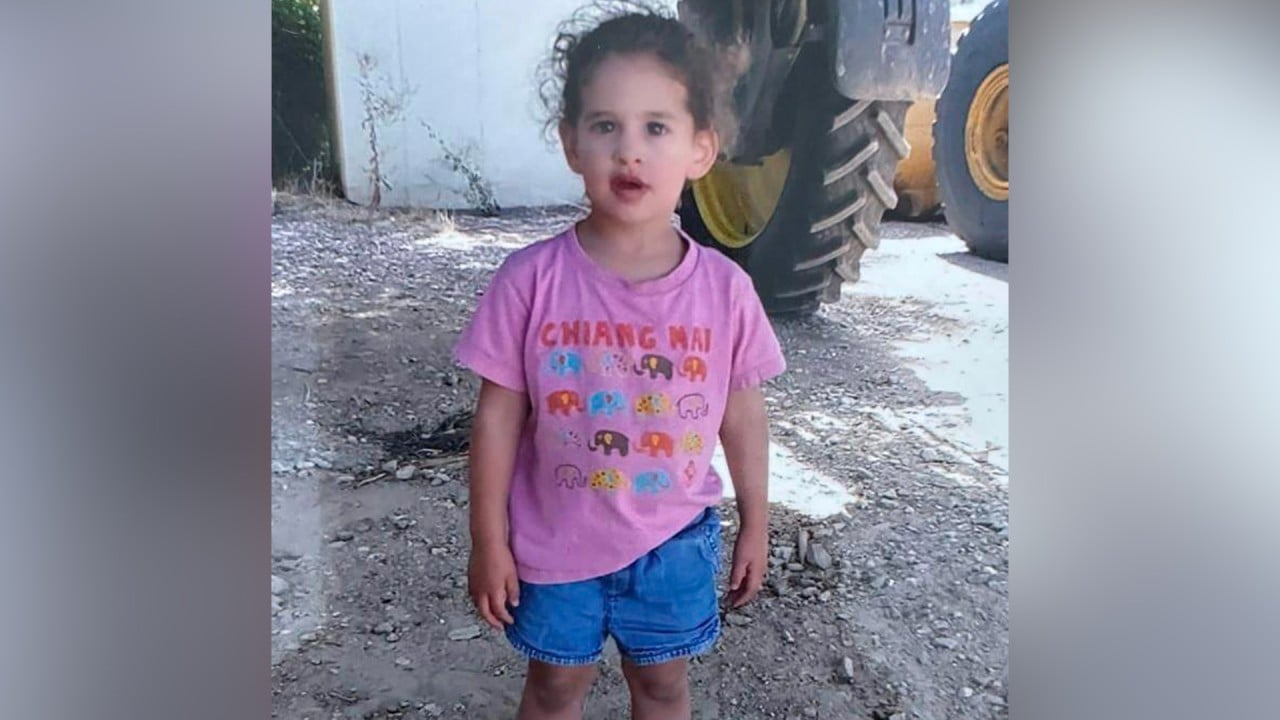
Israeli army, settlers slammed over West Bank violence amid fears of ‘a new Palestinian intifada’
- The US has imposed a visa ban against anyone ‘undermining security’ in the West Bank including ‘extremist Israeli settlers’
- An escalation of the violence in the West Bank could lead to a ‘significant political shake-up’ in Arab states, an analyst says
In nearly half of all recorded incidents by the UN’s Office for the Coordination of Humanitarian Affairs (OCHA), Israeli forces were “either accompanying or actively supporting the attackers”.
‘Looking out for own interests’: why Arab states won’t confront US over Israel
Blinken said the US had “underscored to the Israeli government the need to do more to hold accountable extremist settlers who have committed violent attacks against Palestinians in the West Bank”.
However, he did not name the leaders of the extremist settler movement, who include key allies of Prime Minister Benjamin Netanyahu, as well as members of his own Likud Party – many of whom live on private land seized from Palestinian owners since the 1967 Arab-Israeli war.
Notably, they include Finance Minister Bezalel Smotrich and National Security Minister Itamar Ben-Gvir, who have frequently been criticised by Washington for repeatedly inciting violence against Palestinians.
The two ministers are widely held responsible for a year-long campaign of oppression against West Bank Palestinians which had led to the highest numbers of Israeli and Palestinian civilian fatalities there since 2005.
Can US focus on Asia-Pacific while distracted by Ukraine, Middle East conflicts?
“The settler movement has taken over Israeli security policy in the West Bank, from … leaders such as Ben-Gvir and Smotrich to the killing squads they formed with the intention of ethnically cleansing the occupied territories from their Palestinian inhabitants,” said Ahmed Aboudouh, an associate fellow of the Middle East and North Africa programme of Chatham House, a London-based think tank.
“We are simply seeing the same Gaza policy of pushing Palestinians out of their cities and villages being simultaneously implemented in the West Bank,” he added.
Nir Boms, a research fellow of the Moshe Dayan Centre at Tel Aviv University, said Netanyahu “could to an extent” rein in violent Israeli settlers and their political leaders, “although now this is a more difficult challenge since the security forces do not have capacity to handle these issues”.
Netanyahu could “change” the composition of his government by allying with centre-right parties, and “push Ben-Gvir and the like away from him”.
“But he has chosen not to do it so far,” said Boms, who is also a research fellow at the International Centre for Counter Terrorism in Herzliya, near Tel Aviv.
Netanyahu is “unlikely to make curbing settler violence a priority” said Eli Kowaz, a policy adviser of the Israel Policy Forum, a think tank which promotes a two-state solution to the Israeli-Palestinian issue among Jewish-American leaders and policymakers.
“With that being said”, Kowaz noted that ex-army general Benny Gantz, who is both part of Netanyahu’s wartime government and the leading contender to replace him, “has spoken about the importance of curbing settler violence and has called on law enforcement to crack down on these settlers”.
According to OCHA, 244 Palestinians – including 65 children – were killed in the West Bank, including East Jerusalem, between October 7 and December 4, more than double the previous death toll for the prior nine months.
During the same period, eight Israelis, including three soldiers, were killed by Palestinians in the West Bank, including East Jerusalem and West Jerusalem.
East Jerusalem has been occupied and under control by Israel since the 1967 Six-Day War with mostly Palestinians living there. In contrast, the residents of West Jerusalem are predominantly Jewish.
‘Israel is manna’: Asia’s migrant workers return despite Gaza war dangers
OCHA said two-thirds of the Palestinian fatalities in the West Bank since October 7 occurred during search-and-arrest and other operations carried out by Israeli forces, including some – mainly in Jenin and Tulkarm governorates – involving exchanges of fire with Palestinians.
But more than half of the fatalities were reported in Israeli operations that did not result from armed clashes, the UN body said.
Since October 7, Israeli forces have injured 3,279 Palestinians, including at least 520 children – 45 per cent of them related to demonstrations and 46 per cent during search-and-arrest and other operations.
An additional 82 Palestinians have been injured by settlers and 18 others “either by” Israeli forces or settlers, OCHA reported.

The escalation of violence has prompted many analysts to predict that the West Bank, including East Jerusalem, is ready to “blow up”.
“Frankly, I am surprised it hasn’t until now,” said Aboudouh, who also heads the China studies unit at the Emirates Policy Centre, an independent think tank based in Abu Dhabi.
The Israeli government’s “policy of subjugating the Palestinians in the West Bank and East Jerusalem is … the perfect recipe for violence and even a new Intifada”, he said, referring to two previous Palestinian uprisings between 1987-1990 and 2000-2005.
But Israeli analysts believe such an uprising is unlikely because Palestinian residents of the West Bank fear the consequences of an Israeli military operation.
“I am not sure that Hamas will be able to ‘awaken the masses’ as it has sought to do [in the West Bank],” Boms said. “The price may be too steep and Hamas has been unable to do this so far.”
Why global activism for Palestinians will reverberate beyond Gaza conflict
Kowaz said the situation in the West Bank “is fragile and tensions are high”, but believed the situation there “can be contained”.
“Seeing the events in Gaza has deterred many Palestinians from wanting to escalate,” he said.
Israeli security forces have “operated in a calculated way”, specifically targeting Hamas cells in cities like Jenin and Hebron, while violence from extremist Israeli settlers towards Palestinians is “also on the rise”, Kowaz said.
In any case, the administrative arrangements of the West Bank are completely different to Gaza, from which Israeli forces and settlers withdrew in 2005.

The Palestinian Authority (PA), which is controlled by President Mahmoud Abbas’ Fatah faction – a fierce rival of Hamas – controls administrative and security matters in Area A, which makes up 18 per cent of the West Bank under the terms of the 1994 Oslo Accords.
Area B, which is administered by the PA but is under Israeli security control, comprises 22 per cent, while Israel directly controls the remaining 60 per cent of the West Bank known as Area C.
East Jerusalem was annexed by Israel in 1967 and was administratively merged with West Jerusalem when the Knesset, Israel’s parliament, declared the city the nation’s capital in 1970.
Kowaz said a conflict in the West Bank would be “very different” to the one in Gaza.
Because of Israel’s security control, in coordination with the PA, Hamas “lacks rocket-launching capabilities in the West Bank”, he noted.
“What we would likely see are violent protests throughout the West Bank and an uptick in terrorist attacks”, such as shootings and car-rammings, targeting Israeli communities in the West Bank and Israeli cities on the other side of the Green Line which separates the West Bank from Israel.
‘No life at all’: Indonesian volunteer speaks of devastation in northern Gaza
Boms said it would “be easier” for Israel to make military gains in the West Bank in the event of a conflict since the “weaponry that exists there and infrastructures like tunnels and command centres do not exist to the same scale” as Gaza.
The PA, meanwhile, is “watching closely”, he said.
On the one hand, “it must show solidarity” with Palestinians, while on the other its leaders “might be looking at an opportunity to be empowered and supported, including in a scenario of taking back Gaza” which the US has promoted, although Netanyahu has rejected the idea.
For that to happen, the PA “should stay at arm’s length from Hamas and the idea of a third Intifada”, Boms said.
In Singapore, a ‘highly unusual’ debate on the Israel-Gaza war emerges
The naming of the October 7 attack by Hamas as “Al-Aqsa Flood” has become “a brand now” in the Arabic-language social media, where video footage of intense fighting and the destruction of Israeli tanks by Hamas is “very popular”, he added.
Abu Obaida, the spokesman of Hamas’ Al-Qassam Brigades, which carried out the October 7 attack on Israel, “is a celebrity in many places of the Arab World now”.
“An eruption” of fighting in the West Bank will “ratchet up domestic pressure on Arab countries to end the violence”, Aboudouh said.
In countries like Jordan and Egypt, this could “lead to instability and even a significant political shake-up”.
“This should not be taken lightly when examining the potential blow Arab governments could receive from their populations, had they been seen as not doing enough to help the Palestinians,” Aboudouh added.


